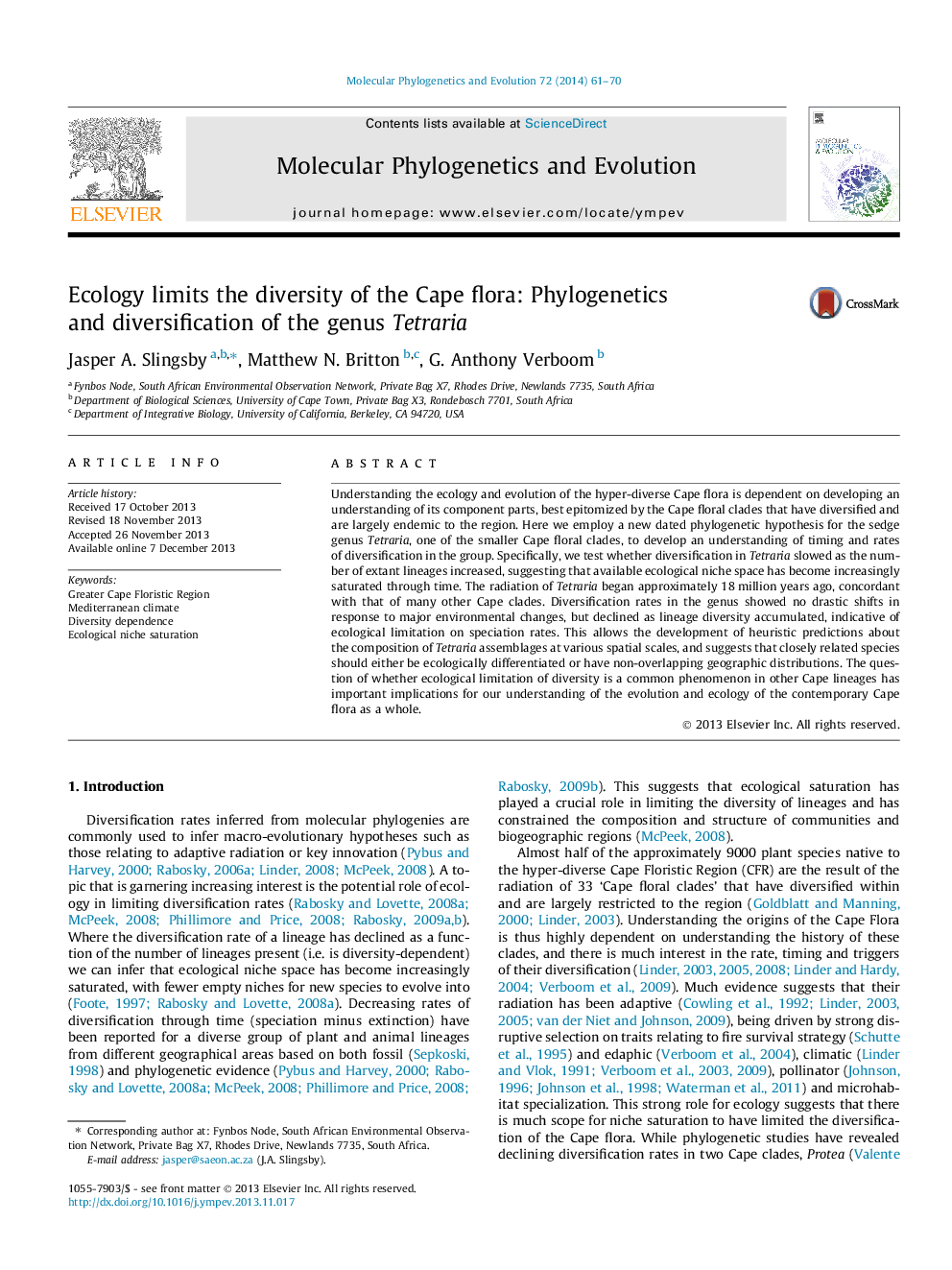| Article ID | Journal | Published Year | Pages | File Type |
|---|---|---|---|---|
| 2833860 | Molecular Phylogenetics and Evolution | 2014 | 10 Pages |
•We test if diversification in Tetraria slowed due to ecological niche saturation.•Diversification slowed as species accumulated, suggesting ecological limits.•Species should thus be ecologically differentiated or spatially segregated.•This has important implications for our understanding of the Cape flora.
Understanding the ecology and evolution of the hyper-diverse Cape flora is dependent on developing an understanding of its component parts, best epitomized by the Cape floral clades that have diversified and are largely endemic to the region. Here we employ a new dated phylogenetic hypothesis for the sedge genus Tetraria, one of the smaller Cape floral clades, to develop an understanding of timing and rates of diversification in the group. Specifically, we test whether diversification in Tetraria slowed as the number of extant lineages increased, suggesting that available ecological niche space has become increasingly saturated through time. The radiation of Tetraria began approximately 18 million years ago, concordant with that of many other Cape clades. Diversification rates in the genus showed no drastic shifts in response to major environmental changes, but declined as lineage diversity accumulated, indicative of ecological limitation on speciation rates. This allows the development of heuristic predictions about the composition of Tetraria assemblages at various spatial scales, and suggests that closely related species should either be ecologically differentiated or have non-overlapping geographic distributions. The question of whether ecological limitation of diversity is a common phenomenon in other Cape lineages has important implications for our understanding of the evolution and ecology of the contemporary Cape flora as a whole.
Graphical abstractFigure optionsDownload full-size imageDownload as PowerPoint slide
